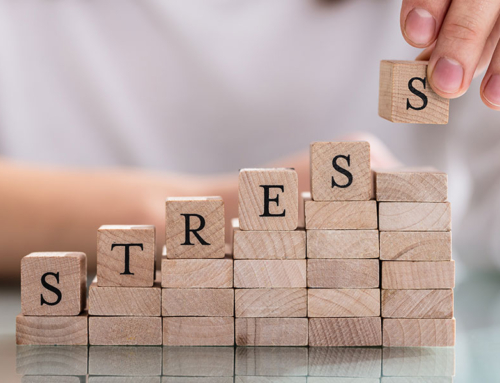Depression and Stress
When Stress Turns into Depression
Being constantly exposed to heightened levels of stress for a long period of time can have detrimental effects on a person’s ability to cope. Workplace pressure, financial woes, marriage troubles and health problems can eventually wear a person down. There are many factors that increase one’s risk for depression such as genetics, endocrine abnormalities, childhood trauma and other immunological disorders. However, but the most frequent cause and the one over which the individual should have the most control is stress.
Stressed and Genetically Predisposed to Depression
When a stressful event ultimately causes a person to suffer from the symptoms of depression it may happen in an indirect manner. If an individual is found to have a family history of major depression and suffers a traumatic event such as the loss of a loved one, they are a high risk of developing clinical depression.
This is an example of a situation in which the loss of a loved one is not the sole cause of depression but rather it is the combination of being genetically predisposed to depression and being exposed to a highly stressful event that increases the risk of being afflicted with depression.
Chronic Stress Leads to Depression
There are also circumstances whereby a person becomes depressed due to their constant battle with chronic stress. For example, if a woman is in an unhappy marriage, she will more likely to suffer from depression when her child has to leave home for college.
The thought of her child leaving home may not have been enough by itself to actually cause depression. However, her constant exposure to the stress of being in an unhappy marriage combined with another stressful thought that her child has to leave home that make her more vulnerable to clinical depression. Chronic stress generally lowers a person’s natural resilience and ability to deal with other, more acute stressors.
The “Kindling Effect” Theory
Some experts have a theory called the “kindling effect” which surmises that after an individual initially suffers from a depressive episode such experience may trigger some changes in a person’s limbic system and brain chemistry that increase their likelihood of developing further depressive episodes in the future.
These early bouts with depression will cause a person to become more prone to developing subsequent depressive episodes. This can mean that exposure to relatively small stressors later in life may be enough to spark another major depressive episode.
The “Learned Helplessness” Theory
As experts continued to study how these stressful events can lead one to suffer from depression, they have also expounded a theory which is called “learned helplessness”. According to this theory, when an individual experiences chronic stress or repeated highly stressful events they learn to feel helpless.
The effects of this learned helplessness is evident among depressed people who often have negative thoughts and beliefs regarding their own ability to manage seemingly minor situations that are happening in their lives. This is because they tend to base everything on their perceived failures in the past.
One example of this would be the case of a teenage girl who was often told that she is stupid by her abusive parents. In turn, the girl developed the mindset that she couldn’t do anything right and that her parents placed no value in her skills and abilities. She can easily develop feelings of helplessness which will cause her to believe that most things in her life are very much far from her ability to control and manage. As a result, her feeling of helplessness may increase the likelihood of developing the symptoms of clinical depression in the future.
© Triangle Mental Health Foundation 2019
Operating Hours
| Mon | 10:00am – 16:00pm |
| Tues | 10:00am – 16:00pm |
| Wed | 10:00am – 16:00pm |
| Thur | 10:00am – 16:00pm |
| Fri | 10:00am – 16:00pm |







